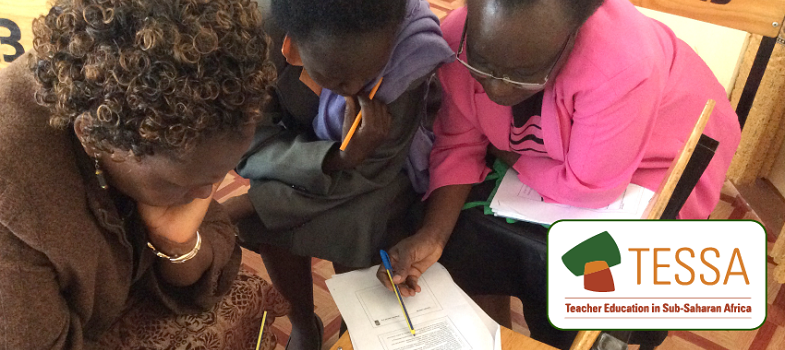3. Learning from performance
Dance can be very personal but it also lends itself to group performance and allows your pupils to grow in confidence and self-esteem. This is very important as it can enhance their attitude to learning and their achievements.
As a teacher, it is important in a practical situation to be aware of the individuals in a group and their achievements, as well as the collective achievement of the group.
Case Study 3 and the Key Activity suggest ways of providing feedback to your pupils that will help them prepare to perform in front of an audience. You will also explore how peers can assess and feed back to each other in order to develop their understanding and improve their work.
Case Study 3: Planning and giving a successful dance performance
Mrs Agholor hears from one of her colleagues that the school is going to have an Open Day at the end of the term. Parents and people from the community will be invited to attend.
Mrs Agholor has been impressed by the enthusiasm of her pupils for the dance work they have been doing and decides to help them develop the dances they have created in class into a performance for the Open Day.
She encourages them to practise at lunchtime and allocates some time during physical education lessons. A week before the Open Day, they perform for each other and give feedback on the strengths of the dances and ways they could be improved. She uses a series of questions to help them think about and improve their performances (see Resource 3: Refining our dance). They rehearse and perfect their dances. At the Open Day, everybody is amazed at how Mrs Agholor’s pupils have communicated their ideas about how the brain works through their dances.
Finally, Mrs Agholor asks her pupils to reflect on the experience; this gives her valuable feedback about the learning process and helps her pupils to think about what they have gained (see Resource 4: Thinking back about dance).
Key Activity: Preparing for a performance
Before the first lesson, read Resources 3and 4.
- Explain to your pupils that they are going to perform at the next parents’ evening and that the head teacher is inviting the community to come too.
- Before you begin, make sure that your pupils are aware of the need to work sensibly. Give them details of how you will stop them while working and remind them that they need to be aware of where their classmates are.
- Organise the class into groups. Ask each group to plan a dance based around a topic you have been studying. (You could decide this or allow your pupils to vote for one from a list.)
- Give the groups time to practise.
- Next, allow each group to perform in front of the class. Encourage your pupils to give each other constructive feedback that will help them improve their performances.
- Support groups as they think about how to improve and refine their dances so that they are ready for performance in front of an audience.
- Discuss any props or costumes and prepare these.
- Make a programme.
- Do the performance.
- Discuss how it went together. What they have learned about dance? What have they learned about the topic?
2. Working in groups to devise a dance



